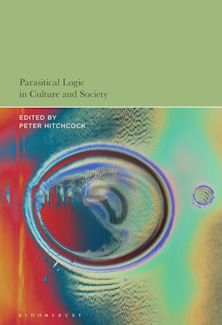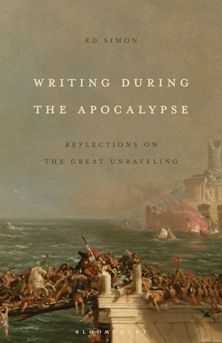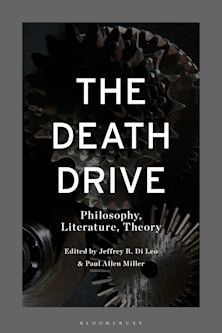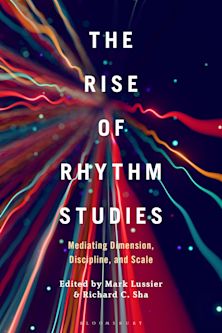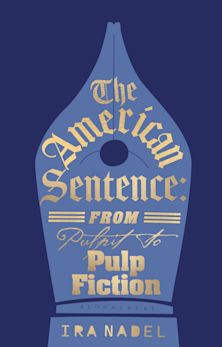- Home
- ACADEMIC
- Literary Studies
- Literary Theory
- The Pathos of Distance
- Delivery and returns info
-
Free UK delivery on orders £30 or over
You must sign in to add this item to your wishlist. Please sign in or create an account
Description
Jean-Michel Rabaté uses Nietzsche's image of a “pathos of distance,” the notion that values are created by a few gifted and lofty individuals, as the basis for a wide-ranging investigation into the ethics of the moderns. Revealing overlooked connections between Nietzsche's and Benjamin's ideas of history and ethics, Rabaté provides an original genealogy for modernist thought, moving through figures and moments as varied as Yeats and the birth of Irish Modernism, the ethics of courage in Virginia Woolf, Rilke, Apollinaire, and others in 1910, T. S. Eliot's post-war despair, Jean Cocteau's formidable selfmythology in his first film The Blood of a Poet, Siri Hustvedt's novel of American trauma, and J. M. Coetzee's dystopia portraying an affectless future haunted by a messianic promise.
Table of Contents
1.“Pathos of distance”: Huneker and Barthes reading Nietzsche
2. “Hard” modernism: Alfred Jarry
3. The Birth of Irish Modernism from the Spirit of Nietzscheism
4. Ethos vs. Pathos of the New in 1910
5. Affect Effects Affects: Deleuzian Affect vs. Lacanian Pathos
6.“Playing Possum”: War, Death and Distance in Eliot's poetry
7. Let the wound speak: Cocteau's Pathosformel
8. The Pathos of History: Trauma in Siri Hustvedt's The Sorrows of an American
9. Pathos of the Future: Nihilism and Hospitality in The Childhood of Jesus
Conclusion: When is a door not a door?
Bibliography
Index
Product details

| Published | 21 Apr 2016 |
|---|---|
| Format | Paperback |
| Edition | 1st |
| Extent | 232 |
| ISBN | 9781501307997 |
| Imprint | Bloomsbury Academic |
| Dimensions | 216 x 140 mm |
| Publisher | Bloomsbury Publishing |
About the contributors
Reviews
-
An often fascinating mix of theoretical reflection, intellectual history and literary criticism ... The Pathos of Distance is invariably interesting and its amazing erudition is simply dazzling.
Literary Research
-
In his latest book, the prolifically inventive scholar Jean-Michel Rabaté offers a lyrical meditation on Nietzsche's famous concept of the 'pathos of distance,' drawing out the implications of this pathos for modernist aesthetics. Instead of a conventional go-ahead academic argument, Rabaté presents a 'chronotopic mosaic,' ranging across several languages and cultural traditions. In this panoramic vista, unexpected affinities emerge between such figures as Benjamin and Duchamp, Eliot and Lukács, Kierkegaard and Siri Hustvedt. Breathtaking in range and erudition, and crafted with elegance and wit, The Pathos of Distance enriches our understanding of modernism while pioneering a new mode of thinking and writing about art and literature.
Maud Ellmann, Randy L. and Melvin R. Berlin Professor of the Development of the Novel in English, University of Chicago, USA
-
Jean-Michel Rabaté's exceptional grasp of the broadest landscapes of modern literature, philosophy, psychoanalysis and culture is brought to bear in this volume on a range of writings and visual representations from the late nineteenth century to the present, from Yeats and Eliot to Coetzee and Hustvedt. In these brilliant readings and explorations of terms for thought – aura, allegory, affect – we find texts, images and concepts opened up in entirely new ways.
Laura Marcus, Goldsmiths' Professor of English Literature, New College, University of Oxford, UK
-
The Pathos of Distance is an inspiring achievement, a work of remarkable breadth and precision. It is an invaluable addition to the conversation on modernism and affect … The book reminds us that critical reading at its best – the kind of generous reading that revitalizes conversations and opens up new interpretive avenues – is often complicit with methodological inventiveness.
James Joyce Quarterly

ONLINE RESOURCES
Bloomsbury Collections
This book is available on Bloomsbury Collections where your library has access.














